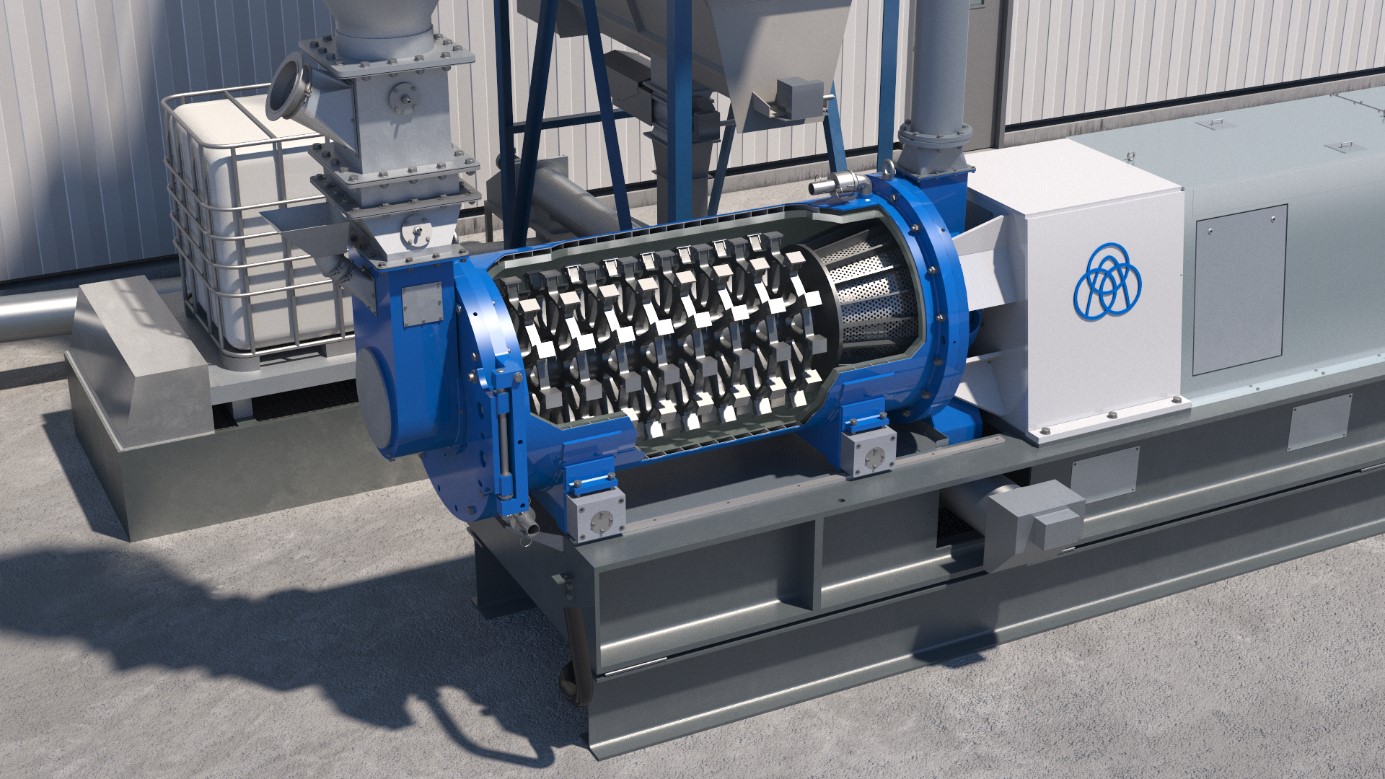Luc Rudowski, Head of Innovation at thyssenkrupp Polysius: "The composite cement produced with the newly developed meca-clay (mechano-chemical activation) only emits around 350 kilograms of CO2 per tonne of cement. Compared to average conventional cement production, the CO2 footprint can be reduced by around 42 percent."
Compared to average conventional cement production, the CO2 footprint can be reduced by around 42 percent.
Luc Rudowski, Head of Innovation at thyssenkrupp Polysius
For years, cement manufacturers have been trying to reduce the so-called clinker factor - the proportion of clinker in the cement - by adding cement substitutes. SCHWENK Zement and thyssenkrupp Polysius are convinced of the efficiency of the new process due to the joint research results in the production of activated clays and the excellent performance in both cement mortar and concrete formulations. A further advantage: in contrast to the conventional combustion process for clay calcination, the new process does not require any fossil fuels to activate the clay and therefore does not cause any emissions of air pollutants.
The opportunities
The mechano-chemical activation of clays is a complementary alternative to calcination, especially for the activation of lean clays. Depending on the availability and price of electricity, mechano-chemically activated clays can be produced economically and used as SCM, e.g. in LC3 cements. Taking scale-up effects into account, the specific energy consumption for mechanochemical activation is likely to be in the same order of magnitude as for thermal activation.
Main advantages
The main advantages of meca clay are:
- Activation works with any clay, i.e. illitic 2:1 clays or calcareous clays can also be activated effectively, for example
- Comminution (grinding) and activation take place in a single process and a single system (polysius® booster mill)
- The scalable meca clay process is modulable and flexible
- Thanks to a patented process, meca clay enables simple color control of the activated clays
- Exhaust gas cleaning is not required
- The activation process is fully electrified. There is no need for fossil fuels
- The Polysius Charger: renewable energy can be stored like in a battery - depending on the activation energy applied and the degree of activation
- Lower water requirement and higher early strength compared to calcined clay.
